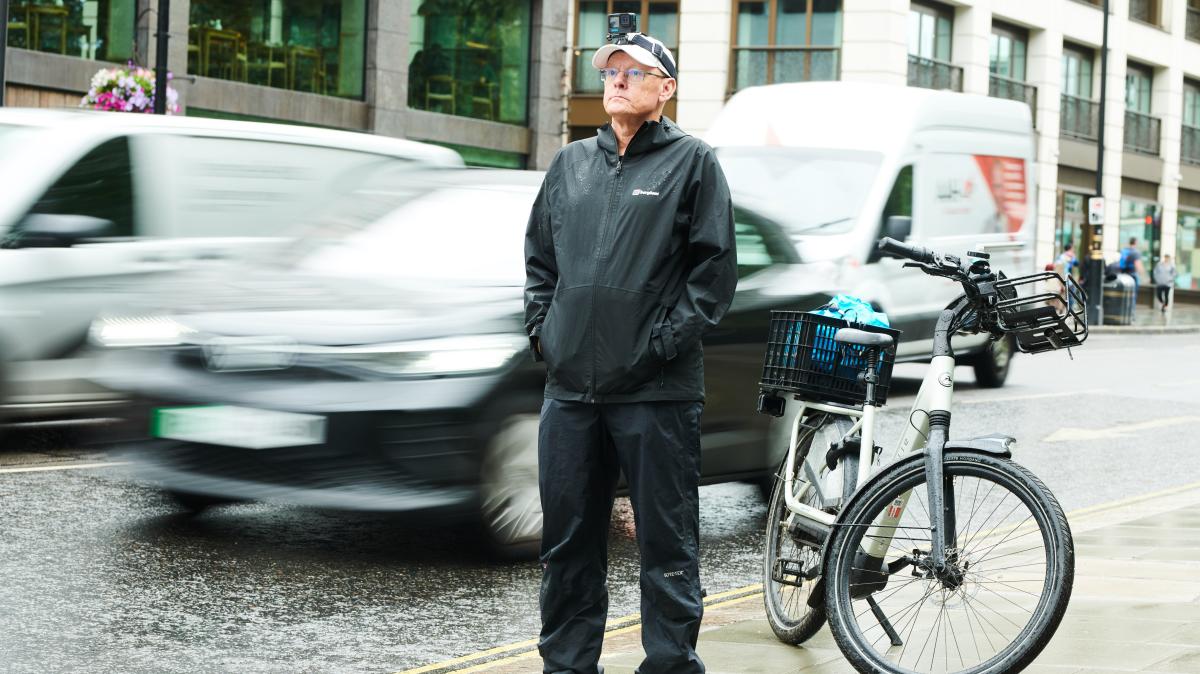“In four years Mike van Erp has filmed 1,400 drivers using their phones, leading to 1,800 penalty points, £110,000 of fines — and him being assaulted by disgruntled motorists. Is he a road safety hero or just a darned nuisance? Nick Rufford joins him on patrol”
I’ve watched a few of his videos. I should be surprised that he catches so many drivers in their phones, but in and around London? Not surprised at all.



What additional danger is posed by someone distracted by their phone stopped in traffic if they’re holding it in their hand, as opposed to it being on a hands-free mount?
The main difference is the tendency to take your eyes off the road to look at your phone and the tendency to want to interact with the screen and any buttons; more likely in the hand held scenario.
Some studies have shown that driving while taking a call was distracting whether or not a handheld or hands-free phone was used, but as I understand things it was felt that enforcing an outright ban on using a mobile phone would be more difficult than banning the use of a handheld phone.
Source: the lovely people at RoSPA - a pdf link to one of their factsheets is here
I first came across them when trying to understand the evidence base for booster seats and the age / weight cut-offs that were being used; enormously helpful people.
Thanks for your comment. I think everyone is really taking my comments out of context.
My point is that the law is objectively bullshit. If the reason for banning phone use was to reduce accidents caused by phones, then why would there be an explicit ban on using phones even while completely stopped, which has a very minor risk to safety, but at the same time, there’s an explicit allowance for the use of handsfree phones, which has a much, much higher risk to safety? It doesn’t make sense at all if you look at it from that perspective.
I think that the laws of our society should be just and sensible. If they’re arbitrary, then they’re bad laws and should be revised.
The legal system is adversarial. Each side is incentivised to submit the best possible case on behalf of the client. Ideas and definitions get tested to the limit - and eventually a line has to be drawn; this may or may not set a precedent and any precedent may or may not require specific context or circumstance. Public interest plays a role. It may seem arbitrary at times but that’s how it works. Society does not want dangerous intoxicated or distracted drivers on the road.
The problem with this idea is that lawyers are expensive and poor people can’t really afford good representation. So if we have a legal system where it’s possible for people to get mired in expensive, lengthy legal disputes, where even if you’re innocent then your life can be destroyed by the struggle of it, then that’s essentially establishing a system where law is used to serve wealthy people at the expense of the poor. And that is exactly what we do have.
What’s your alternative?
We need to start by admitting that there is something wrong with the system and come up with an alternative that works for all of us, so that means discussing ideas and building consensus.
Anyone who thinks they have a solution to our problems single-handedly without working with others to come up with it is guaranteed to miss lots of things
You’re not completely stopped in traffic though are you, that traffic could start moving again at any moment and you not being fully cognizant of your surroundings when that happens can cause dangers for other road users.